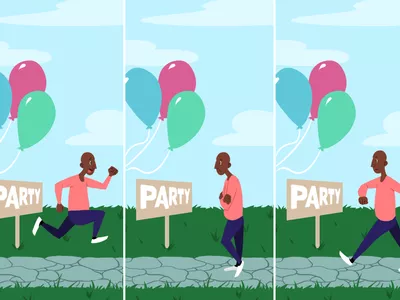Types of Therapy: An A to Z List of Your Options
In today’s world, mental health awareness is on the rise, and with it comes a multitude of options for seeking help. Psychotherapy, or talk therapy, is one avenue that many individuals explore when facing mental health challenges. However, navigating the various types of therapy can be overwhelming. In this guide, we’ll break down some of the most common types of therapy in simple terms, helping you understand what they entail and what they’re best suited for.
Different Types of Therapy
Therapy comes in many forms, but they typically fall into broad categories such as cognitive, behavioral, humanistic, or psychodynamic therapies. Each type has its own techniques and focuses, catering to different needs and goals.
Cognitive Behavioral Therapy (CBT)
What it is: CBT helps individuals identify and challenge negative thought patterns that impact emotions and behaviors.
How it works: With the guidance of a therapist, individuals learn to recognize distorted thoughts and replace them with more realistic and helpful ones.
Good for: Anxiety, depression, substance abuse, eating disorders, and more.
Dialectical Behavior Therapy (DBT)
What it is: DBT blends cognitive-behavioral techniques with mindfulness and acceptance strategies to help regulate emotions.
How it works: Through individual and group sessions, individuals learn skills for managing intense emotions and improving interpersonal relationships.
Good for: Borderline personality disorder, PTSD, substance abuse, and other conditions involving emotional dysregulation.
Acceptance and Commitment Therapy (ACT)
What it is: ACT focuses on accepting thoughts and feelings while committing to actions aligned with personal values.
How it works: It involves processes like identifying values, practicing mindfulness, and separating oneself from negative thoughts.
Good for: Anxiety, depression, chronic pain, and other conditions where acceptance and value-based action are beneficial.
Psychodynamic Therapy
What it is: Psychodynamic therapy delves into unconscious emotions and past experiences to understand current behaviors and relationships.
How it works: Through regular sessions, individuals explore their thoughts and feelings, often with a focus on relationships and childhood experiences.
Good for: Anxiety, depression, personality disorders, and addressing deeper emotional issues.
Family Therapy
What it is: Family therapy focuses on improving communication and relationships within families to address mental health issues.
How it works: Therapists work with families to identify and resolve conflicts, strengthen bonds, and improve overall functioning.
Good for: Any mental health issue influenced by family dynamics, such as communication problems or conflicts.
Conclusion
Choosing the right type of therapy is a personal decision influenced by various factors, including your symptoms, preferences, and treatment goals. By understanding the different approaches available, you can make an informed choice that aligns with your needs. Remember, therapy is a collaborative process, and finding the right fit may take some time and exploration.
FAQ
1. How do I find the right therapist?
Start by researching therapists in your area and considering their specialties and approaches. You can also ask for recommendations from your doctor or trusted friends and family members.
2. How long does therapy typically last?
The duration of therapy varies depending on the individual’s needs and goals. Some people may benefit from short-term therapy focused on specific issues, while others may engage in longer-term therapy for deeper exploration and growth.
3. Will therapy work for me?
Therapy can be effective for many people, but individual results may vary. It’s essential to approach therapy with an open mind and actively engage in the process to maximize its benefits. If you’re unsure, consider scheduling an initial consultation with a therapist to discuss your concerns and goals.






